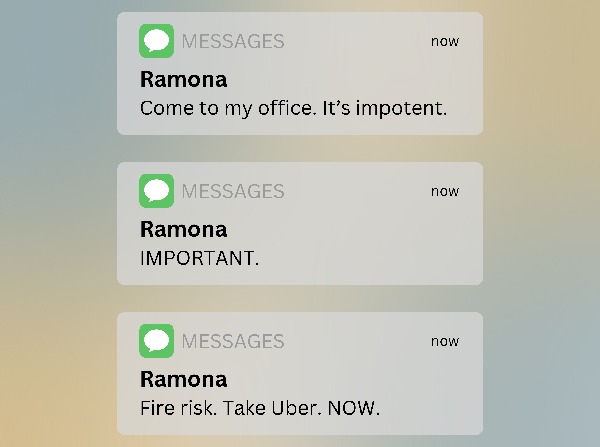Leaning into Fear, with Julie Kinn
August 16, 2023:
Contest,
Interview
Contest
Elite Reads
Evaluation and Revision
Interview
Marketing
Personas
Publishing
Romance
Tips
Your Process
😃 Subscribe for Weekly Posts:

Cheerio-loving, vertically challenged Zillah epitomizes the quintessential college student navigating her path to an uncertain future. Like many students, she has a roommate. However, unlike most, it’s not a friend, romantic partner, or someone she found on Craigslist. Instead she lives with her mother, Ramona. And Ramona is problematic. Very problematic.
Thus begins Picky, whose author, Julie Kinn, is the winner of our Summer 2023 First Chapter Anthology Contest. The first chapter of this novel-in-progress is replete with laugh-out-loud humor, believable family tension, and thought-provoking moments of self-reflection—the kind of opening that compels the reader to turn the page, and keep turning.
But Picky is so much more than just a good read. It also carries an important message about leaning into one’s fears, as told through the lens of a relatable twenty-one-year-old woman who must grapple with her mother’s neuroses in addition to her own anxiety. In it, we observe the diverse ways in which characters manage their mental health, with varying degrees of success.
Yes, Picky offers a teachable moment. However, it is delivered so organically that it invites the reader to consider profound questions with the ease and satisfaction one might experience by, for example, picking up dry Cheerios with one's tongue and skipping the spoon. Informed by compassion and humor, as well as expertise, it is devoid of the sort of didacticism that tells the reader what they should think. Rather, it offers myriad opportunities for readers to think for themselves.
It is not surprising, then, to learn that our winner, Julie, is a clinical psychologist and long-time therapist, who has spent her professional life exploring the human condition in all its imperfections and wonder. What is fascinating is that this story evolved from a conversation in which her thirteen-year-old daughter declared a new interest in writing. Since becoming an author was always on her bucket list, Julie took the opportunity to support her daughter by writing a story of her own.
With Picky, Julie sought to dispel the notion that therapy only consists of lying on a couch for an hour and expressing your feelings. Julie wants everyone to know that therapy can be creative, fun, and even funny. By expanding our understanding of mental health care, she opens the door to a new way of conquering fear, and living a more fulfilling life.
The fact that Julie was able to produce a first chapter that checks nearly every box on our Publishability Index™ should serve as an inspiration and aspiration for every emerging writer. Let’s take a look.
Character
While Ramona is physically absent from this chapter, with the exception of her phone call and texts, her influence on Zillah’s life is tremendous, from her insistence on Zillah washing her sneakers weekly to her choice in career. While Zillah is passionate about art, she is pursuing “the world’s most boring career”: real estate appraisal. Not only is this a Ramona-approved, “safe” career, but it is also one that will allow Zillah to finally have the financial means to live independently.
Ramona’s need for control is indicative of her mental health struggles, a long-time issue that was recently compounded by the pandemic. This puts quite the strain on her relationship with her daughter, and ultimately propels the narrative.
World
Zillah’s current living situation is far from that of the “someday-apartment” she dreams of. It may be spick-and-span, thanks to Ramona’s obsessiveness, but it doesn’t feel like home should. It’s cold, not just because it’s January in Chicago, but because of the constant tension between the two people who live there.
There is a silver lining to living in the apartment, however:

I guessed that my neighbor also had bare wood floors since the acoustics were ideal for my eavesdropping. She didn’t seem concerned about privacy and spoke to her therapist through
the computer speaker instead of using a headset. As long as I sat at my desk, I could hear her easily. It’s the one time I’ve been grateful for our apartment’s crappily insulated
walls.

From her desk, Zillah has a front-row seat to her neighbor’s therapy session. Since her mother thinks therapy is a “waste of time,” and discourages Zillah when she brings up the topic, this is her opportunity to see therapy in action, and even try some of the exercises herself.
Conflict
The conflict of this story arises from the tenuous relationship between Zillah and her mother. Just like real-life relationships, their bond is layered, and Zillah's feelings towards her mother are not so black and white. One the one hand, she is fed up with her mother’s behavior, but on the other she still yearns to please her and instinctively cares for her:
I hate that my time isn’t my own.
I hate sanitizing everything I touch.
I hate wondering if she’s getting worse.
I hate loving her despite all of this.
I hate sanitizing everything I touch.
I hate wondering if she’s getting worse.
I hate loving her despite all of this.
As the chapter continues, this long-festering conflict takes on a new urgency. When Ramona becomes involved in an altercation that winds up with a man being hurt and the police being called, the stakes are exponentially raised. No longer is this just a conflict involving Ramona and her mother, or a question of only Zillah’s future. The reader is left to wonder: What will the outcome be, for all involved? How will this event affect the relationship between these two women?
Theme
The best first chapters plant thematic seeds that will grow and bloom over the course of the novel. Here we can already see how this is a story about the different ways in which individuals handle their anxieties: Ramona allows them to control her life (and those of others), their neighbor seeks professional help, and Zillah hovers in uncertainty.
This sets the stage for Julie to achieve her goal of showing how a new type of therapy, cognitive behavioral therapy with exposure and response prevention (say that five times fast), can help people struggling with anxiety and other issues.
Plot
With a first chapter, all eyes are on the inciting incident. What is the event that will launch the entire narrative into action? Julie does not let the reader down.
While she’s eavesdropping on her neighbor’s therapy session, Zillah receives a series of texts from her mother, all of which seem to be representative of their usual conversations, that is, until Ramona reveals that the police are on their way.
Suddenly, the neighbor’s therapy session might as well be on mute, as Zillah makes a call of her own, in an attempt to discern what’s actually happening. Unfortunately, her call with her mother leads to more questions than answers.
As Zillah rushes out to her mother’s aid, with an impulse akin to a rescue, we realize that Zillah and her mother’s lives have taken a turn:


As I ran down the stairwell, I felt like I was saying goodbye. Goodbye to our sense of peace. Even though I’d be home soon—we’d be home soon—it would feel different. The time for pretending things were normal was over.
The hallmark of a strong first chapter is its ability to shift the status quo, and here the trajectory of these two characters is irrevocably altered. As Zillah walks out the door, there is no going back.
Language
Character voice is the product of every tool at the writer’s disposal, including vocabulary, syntax, and dialogue. Julie utilizes all of them to create a unique voice for Zillah, making this story distinctly hers and bringing this character to life.
A key attribute of Zillah’s character is her dry humor and caustic wit, which shines through at many points of this chapter. Just try not to chuckle at lines such as this one:
Sing-song Ramona was gone and in her Serious Mom voice she said, “This again? You’ll move out when you’re well established at a decent firm.”
I wondered what an indecent real estate firm would look like. Nude house showings? No doors on the bathrooms? Only listings with sex swings and BDSM dungeons?
I wondered what an indecent real estate firm would look like. Nude house showings? No doors on the bathrooms? Only listings with sex swings and BDSM dungeons?
That humor makes even more sense when you learn that many practitioners use humor and games when helping their clients learn exposure and response prevention therapy, to make it easier for them to engage in the treatment.
Beneath her humor, though, is a deep, simmering frustration, imbued in the language of Zillah’s thoughts:
Hearing someone else talk about fear and feeling stuck was energizing. It was like taking notes and learning from a fellow criminal’s prison escape.
This provides a sense of the gravity of the situation for Zillah—she feels like she’s imprisoned. It also sets the reader up for the point when she inevitably tries to make her escape.
Cohesion
All together, the nuanced, believable characters of Zillah and Ramona, the conversations that travel through their paper-thin apartment walls, and the urgent development in their longstanding conflict create a captivating first chapter.
Rather than merely converging, each element builds upon the others, laying the foundation for the remainder of the novel and leaving readers eagerly anticipating the next page.
Reading her work, it’s hard to believe that Julie only started writing a few months ago, in April. Since then, she’s already managed to produce an entire first draft, an immensely impressive feat (and good news for those who can’t wait to read the whole book).
When asked what advice she might have for writers who are feeling stuck, Julie suggested telling yourself, “I’m going to write for twenty minutes.” Take a moment to acknowledge any objections, such as “Everything I write is stupid” or “I don’t know what to write next.” Then, once you know what obstacles are in your way, you can implement targeted strategies to overcome them, whether taking a step back and planning or looking your fears in the face and pushing through.
Our 2023 Summer Anthology is now available on Amazon. Pick it up so you can enjoy Picky as well as many other captivating first chapters.
CLICK A TAB TO USE WILL.POWER
TO DO LIST:
Add tasks to your sortable list, then revel in checking them off.
SCRATCHPAD:
Cache your gems as they fall in this always accessible place.
PRIVATE JOURNAL:
Reflect on your process — good, bad and ugly — in your dated diary.
TRACKING:
Measure your progress with key writing metrics, automatically,
TO DO LIST:
Add tasks to your sortable list, then revel in checking them off.
SCRATCHPAD:
Cache your gems as they fall in this always accessible place.
PRIVATE JOURNAL:
Reflect on your process — good, bad and ugly — in your dated diary.
TRACKING:
Measure your progress with key writing metrics, automatically,
ADD DO
Show Dones
Metric:
ADD
Words
Minutes
Click anywhere to close